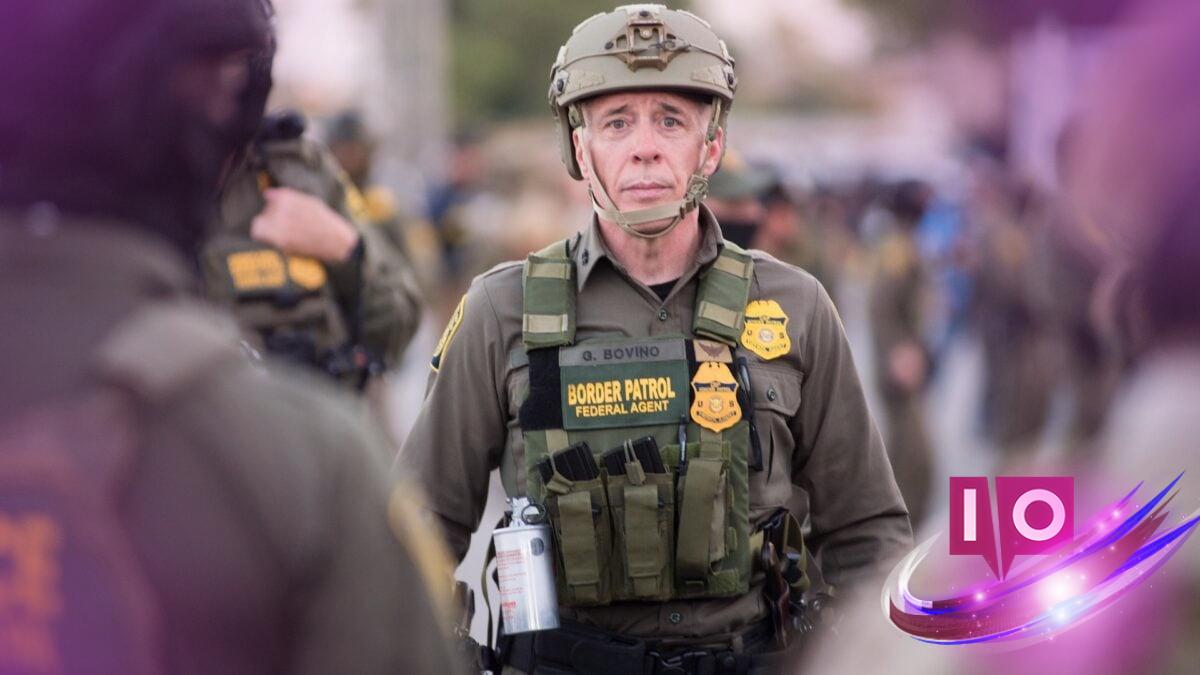A recent U.S. Border Patrol video featuring problematic antisemitic lyrics has sparked significant outrage online. Posted initially on Facebook and Instagram, the video quickly went viral, especially among far-right circles. This disturbing content, featuring lyrics like “Jew me” and “kike me,” was removed from the platforms the following morning. However, it remains unclear whether the removal was initiated by the Border Patrol or Meta.
The short, 13-second video appeared on Instagram in August, but it was pinned prominently in the Reels section, increasing its visibility. It started gaining traction on X late Tuesday, where far-right users recognized its implications. At the time of Gizmodo’s review, the Instagram video had racked up 3.4 million views.
Controversial Background of the Video
The audio in the clip is sourced from Michael Jackson’s 1995 song, “They Don’t Care About Us.” Jackson’s lyrics, especially in this context, had previously faced criticism for their antisemitic undertones. While Jackson defended their meaning, he did modify the song after backlash.
A Breakdown of the Content
The video begins with footage of a bodycam, transitions to Border Patrol agents with firearms, and features shots of vehicles in the desert. Given its brevity, the choice of lyrics seems deliberately crafted to highlight those offensive aspects. The Department of Homeland Security (DHS) has yet to comment on this incident.
Gizmodo managed to save a copy of the video before it was removed from both Instagram and Facebook.
Far-Right Reactions
Comments on Instagram indicated a clear understanding of the antisemitic message. Some users described it as a “based song choice”—a phrase surprisingly liked by the Border Patrol account. On X, far-right commentators expressed explicit sentiments regarding the lyrics, with one remarking, “This deserves 6 million likes and shares,” a troubling reference to Holocaust victim numbers.
The Shift in Politics and Language
This incident isn’t isolated but rather indicative of a rising acceptance of far-right sentiments within mainstream circles. For example, following President Donald Trump’s re-election, many of his supporters began to adopt and express increasingly extreme views. Trump himself has made several controversial remarks, further normalizing such rhetoric.
In real-time political discourse, semantically charged language has shifted. For instance, a post from DHS recently used the word “Remigrate,” a term reflecting far-right ideologies often linked to ethnic cleansing.
Why Did the Video Go Viral?
The confluence of social media visibility, troubling political rhetoric, and the ongoing normalization of far-right attitudes has allowed such content to proliferate. Social media platforms often become breeding grounds for extremist ideologies, with government agencies inadvertently amplifying these messages.
What are the repercussions of antisemitism in the media?
Historically, antisemitism has been a recurring theme within various political narratives. As highlighted by certain leaked texts, some members of the Republican Party have openly expressed admiration for figures like Hitler. This troubling trend signals a concerning drift toward normalization of hate speech and extremist ideologies.
The continuity of such messaging possesses real-world implications, particularly if government agencies use social media to propagate divisive rhetoric. The evolving nature of language and its context in political dialogue raises questions about responsibility and accountability.
How can we combat antisemitism and hate speech online?
Combating hate speech online requires robust measures from both social media platforms and users. Reporting, education, and discourse can help bring awareness to such issues. Critical discussions around these topics encourage community resilience against harmful ideologies.
What role does the Department of Homeland Security play in this narrative?
The DHS’s engagement in far-right dialogue has raised eyebrows. Historically linked to several extremist groups, its recent posts only emphasize the troubling overlap between governmental authority and inflammatory rhetoric. This relationship calls for greater scrutiny as it impacts public perception and trust.
As the landscape shifts and evolves, it becomes vital for engaged citizens to question and challenge the narratives being propagated by both governmental agencies and influential public figures. The intertwining of politics and hate speech requires active dialogue and corrective measures.
To stay updated on relevant topics and the unfolding political climate, consider exploring more at Moyens I/O.
